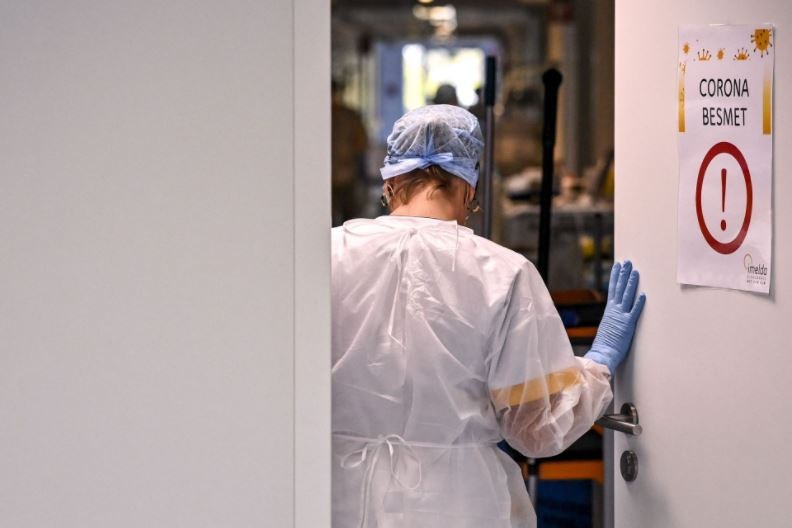All hospitals in Belgium have been told to immediately postpone all non-urgent care for two weeks to free up beds for coronavirus patients, the Hospital & Transport Surge Capacity (HTSC) committee announced in a letter.
The letter was distributed to all hospitals in Belgium on Tuesday evening and lists three types of interventions:
- Postponable surgeries and activities that use intensive care;
- Classic hospitalisations that do not use intensive care;
- Surgical one-day hospitalisation activities that do not use intensive care.
Life-saving surgeries and therapies such as chemotherapy, dialysis or necessary rehabilitation may continue, the HTSC stressed.
'The committee does not request that priority be given to one or the other pathology (disease),' the letter states. 'However, it is certain that the influx of covid patients will continue in the coming weeks. We can no longer prevent this and the new measures will only have a late effect.'
On Wednesday 1 December, 3,750 Covid-19 patients are admitted to hospitals in Belgium, including 780 patients being treated in intensive care.
'By 6 December 2021, we will probably exceed 900 Covid patients in intensive care. If there is no turnaround, we will reach the threshold of 1,000 Covid patients in intensive care by 10 December 2021,' the HTSC stated.
Related News
- Belgium surpasses 27,000 mark for Covid-19 deaths
- Getting curves down by Christmas will be 'difficult task,' says Van Gucht
- Omicron variant poses 'very high' global risk, warns WHO
At the same time, 220 intensive care beds have been closed due to staff shortages across Belgium, the committee added. It asked hospitals to open those beds so as not to fall below a minimum limit of 800 intensive care beds which are needed to treat non-covid patients.
If they cannot be opened as full ICU beds, then they should at least be used as "medium care" beds where patients can go before or after an intensive care procedure.
For the first time this year, the Ghent University Hospital (UZ Gent) did not have a single free bed in their intensive care unit on Tuesday, Dominique Benoit of the UZ Gent's ICU said on Flemish radio.
Choosing between patients in intensive care is not an issue yet, "but the pressure to make medical decisions is gradually increasing," said Benoit, adding that he expects a peak in hospitals in about two weeks.
"We have raised the alarm almost hysterically in the media, but politicians should have intervened earlier," he said. "We are going to remain professional but what is coming our way in the next few weeks in the hospitals is a purely political responsibility."
A squeezed-out lemon
What the hospitals need are clear decisions, not more political compromises, Benoit stressed. "This yo-yo game – which has been going for two years now – leads to nothing. We really need a sustainable policy."
Additionally, Margot Cloet of the care umbrella organisation Zorgnet-Icuro told the Belga News Agency that she doubts that the decision to postpone non-urgent care is sufficient.
"We are squeezing out a lemon that has almost been completely squeezed," she said, adding that additional measures may be necessary and pleading for a parliamentary debate about which patients should be treated as a priority.
"Tough decisions will have to be made: which patients are we going to give the intensive care they need? Will we continue with the division between Covid and non-Covid patients? Or will we move to a system like the one in the Netherlands where the decision is taken based on the length of stay and the expected quality of life after treatment?"
In the Netherlands, a script for such choices was made after a broad public debate and this discussion is also needed in Belgium. "Policymakers should also look into this, and not just leave it to the healthcare sector," she said. "The ball has been put in the hospitals' court long enough, it is now up to politicians to take responsibility."

